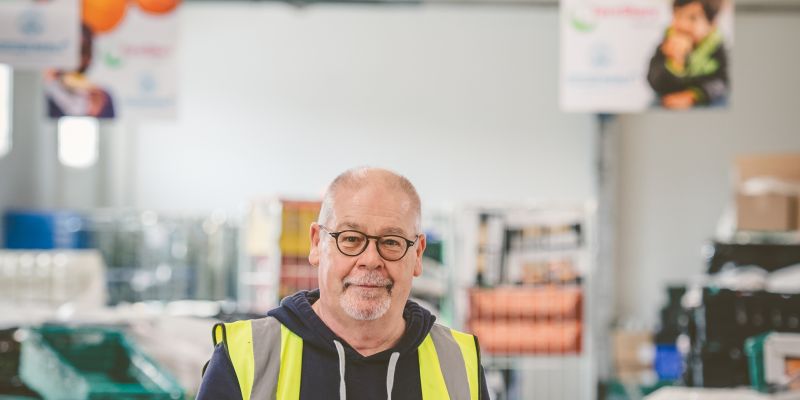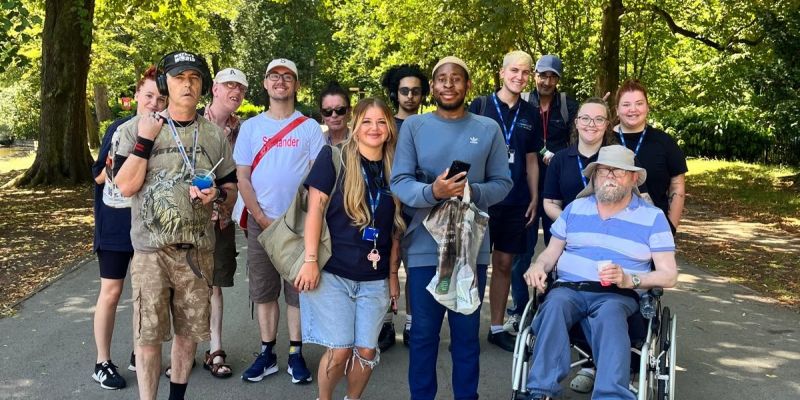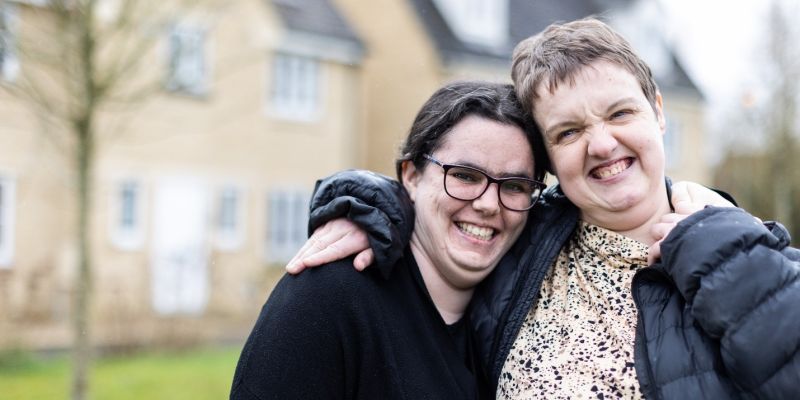
What we do
Good Finance is a collaborative project to help improve access to information on social investment for charities and social enterprises.
Our mission is to be the single trusted source of information on social investment for charities and social enterprises.
We will achieve this by:
- Improving knowledge on social investment, what it is, what it can be used for and the journey and process it requires
- Enabling organisations to make informed decisions, based on their needs and situation, not on embedded attitudes
- Helping connect organisations to the right investors to talk to based on shared values

Is It Right For Us?
This diagnostic tool will help you to decide whether social investment is right for your organisation.
It takes about 2-3 minutes to complete and it will ask you questions about your organisation and your financial needs and is designed to help you understand if social investment is something your organisation could consider.
If so, it will direct you to the types of social investment that may be suitable based on the information you've entered. If not, it will provide you with some suggestions of actions you can take as an organisation to become ready for social investment.
Our trusted Investors and Advisors
Good Finance have created a list of potential Investors and Advisors to find help for your organisation.
Use our interactive map on the Investor Directory to narrow your search by location, amount needed, product type or the social issue that your organisation is tackling to find an organisation or fund that aligns with your values.
If you're looking for advisory support, check out our Advisor Directory and filter by location, organisation type and support provided to find the individual or company best-suited to your needs.

Frequently asked questions
We've got you covered, read on.
Is social investment more expensive than mainstream commercial lending?
When a loan or investment is being made by an institution such as a bank, they will consider what terms to offer based on how risky they think the investment is. Social enterprises sometimes fall into a higher risk category making it expensive, or sometimes impossible, to borrow money.
Often social investors will lend where mainstream lenders will not. When comparing rates, it is more useful to find out what commercial lenders would offer, for example, for unsecured riskier loans, rather than the high street rates that you sometimes see advertised.
Are loans more expensive through social investment?
The cheapest form of commercial finance is normally a secured loan. This is most widely available from commercial banks. However, the social banks (such as Charity Bank) generally offer competitive pricing and may lend to charities and social enterprise that high-street banks would not.
If you are not able to secure the loan against a building or other asset, it will often be challenging to raise commercial finance. When finance is available from banks or peer-to-peer lending platforms, they may demand personal guarantees.
Social lenders will rarely ask for personal guarantees, and will sometimes expect a lower rate of interest for equivalent risk. However, the cost of social investment depends on the social investor, their motivations for investing, risk appetite and return expectations (read more about this here). For example, a trust or foundation may be willing to provide a loan at lower than commercial rates of interest. Whereas a social bank may have higher financial return requirements to meet their responsibilities to their shareholders as a sustainable business. Many social investors will trade-off the return and risk expected with the likely social impact achieved.
Read examples of how a secured loan and an unsecured loan have been used.
Is equity investment cheaper with social investment?
For equity investments, it is impossible to say if it's cheaper because technically there is no "price", only a percentage share of the organisation. However, it's likely that commercial investors will demand a higher rate of return through their dividends, in comparison to social investors. They are also likely to expect more in terms of reporting and modelling on expected future returns. In contrast, social investors have often been willing to take a greater risk on financial return from an enterprise because of the additional social impact.
Here's an example of where equity has been used.
Is social investment suitable for social enterprises and charities at every stage of their development e.g. start-up?
There is no easy answer to this question as much will depend on the proposition, the risk and the lender. However as a general guide there are two stages of the organisation cycle where social investment is less likely to be available or may be more challenging to secure:
Start-up – often you will need to have proof of concept and have tested the market before being able to look for investment. It maybe that angel investors or crowdfunding might work. Or depending on the sector then technology incubators could be an option. Start-up ventures, due to the lack of track record, are often considered to have the greatest level of risk.
Crisis – social investment is very unlikely to work if you are in financial or organisational crisis, unless there is a credible plan for recovery, and investment can help meet short term cash flow needs. Investment of any kind needs good governance, strong management and leadership and requires a stable and well-functioning organisation to service lending.
Is there a benefit of social investment instead of commercial investment?
Many charities and social enterprises access finance from mainstream banks and using it to help them deliver social impact. If borrowing from mainstream sources is available to your organisation then this might be a cost effective way to finance your social business. It may even be that a blend of commercial and social investment is the best solution.
However, there are many charities and social enterprises who are not able to access this finance, and who need to be able to take on investment or finance from investors interested in social impact as well as a financial return. In addition, specialist social investors often bring additional skills, insights and access to networks beyond the finance they provide. They may bring support to areas such as social impact measurement expertise, capacity building support, financial systems and controls and help strengthen your board’s skills. Increasingly social enterprises and charities stress the importance and value of their working relationship and forming a partnership with their social lender.
Is it wrong for charities to use their own charitable funds to repay investors?
Charities need to make a clear and compelling business case to support any plan to bring in social investment (and ensure that their governing documents permit borrowing in the first place). The purpose of the social investment should support the growth and delivery of the charitable objectives, the sustainability of delivery of services and of course the increased social impact that will be created as a result of the investment.
By deciding to use investment, the charity will need to be confident that their planned activities and future income generated will be able to support the investment repayments, including interest. The board will need to be confident that any financing costs contribute towards the delivery of increased impact and income generation, and as such is no different than incurring any other support costs involved in running an organisation.
If my organisation has lots of reserves, why would we borrow money?
Using your own resources may be the right option for funding some activities, as it will be cheaper than borrowing externally. Organisations that hold reserves may still choose to take on investment as:
- Their reserves may be held for emergencies rather than to fund new developments.
- They may want to make the most appropriate use of the reserves they have built up and only use reserves to fund activities that could not use repayable finance (such as research) and bring in external investment to fund activities that generate income.
- ‘Softer’ benefits of using investment may be attractive. For example, increased awareness of the organisation by a new group of stakeholders or the benefits of the expertise and external perspective of the investor.
- Organisations with high levels of reserves will have lower perceived financial risk, and therefore may be able to attract investment at more competitive rates
Are Board Trustees and Directors personally liable for taking on or making a social investment?
Trustees and directors of organisations taking on or making any type of investment may become personally liable should something go wrong with that investment. However, in most cases, provided the director or trustee was acting prudently and lawfully, the organisation would itself normally meet any liabilities or debts that arise. In any case, most potential risks can be mitigated with good business and governance practices.
The legal and governance structure of the organisation will play a role in the extent to which a trustee or director may be liable for any losses or debts arising due to making or receiving a social investment, in particular, whether or not the organisation is incorporated (e.g. a company, charity established as a CLG, CIC or CIO) or unincorporated. Typically, personal liability arises when an organisation does not have sufficient assets to cover its liabilities or where the director or trustee does not act prudently or lawfully (e.g. a director making a social investment where this is not permitted under the company’s constitution and therefore acts outside of his or her powers).
What happens if my organisation can’t make repayments?
As with any business, things can go wrong. When social investors make investments, they consider both the financial return and social impact. Equally, when dealing with an organisation that is unable to make repayments, they consider both the financial and social impact of actions, and may trade-off between them. For example, if there is a potential renegotiation of terms that might enable repayment then social investors will work with the investee to try and arrive at a mutually beneficial solution.
However sometimes where there is no opportunity to recoup the investment the debt may have to be written off. In the worst-case scenario, this might contribute to or cause the closure of the investee. Decisions of this nature are never undertaken lightly and most importantly if things get tough talk to your investor, be honest and upfront as soon as you identify a problem so you can try and work together on a solution.
Why do social investors ask so many questions before being able to make a decision about lending?
This is called Due Diligence and all social investors have their own procedures for conducting this part of the process. Social investors have a duty and a responsibility to make sure that charities and social enterprises are financially secure enough and that forecasts indicate that they will be able to afford the repayments on any lending they are considering making. Whilst there is not one standard process generally you will need:
- A cash flow forecast
- A business plan
- Demonstration of social impact
- Information about your management team and your board’s skills
Many social enterprises and charities who have been through this process admit that it was tough but necessary. As a result, they felt that their organisation was strengthened through the experience. If you feel the information that is being asked for is excessive don’t be afraid to ask why it is needed.
What do I do if my application for investment is turned down?
It is important to understand why your application was refused. It may be that you need to go away and do some further development or capacity building of systems, procedures or financial practice in order to become investment-ready. It may be that the proposal was considered ‘too risky’ for the lender’s portfolio in which case there may be an alternative social lender you might be able to approach. Make sure you get the feedback you need so you can learn from the process and use it to help your organisation’s development.

FareShare Midlands, part of the national FareShare UK network, plays a vital role in fighting food waste and hunger across the Midlands from the east coast to the Welsh border. Operating from three dedicated warehouses, the charity redistributes surplus, in-date food to more than 650 local community groups, reaching 60,000 people, the majority of whom live in some of the UK’s most deprived areas.

Birmingham Supported Living (2010) provides accommodation and support for people who suffer from mental health issues, learning disabilities, physical conditions, autism and asperges. Its mission is to provide homes that are safe and supported and to provide care that enhances the quality of life for residents, who are generally seeking long term homes and support.

Golden Lane Housing is a leading provider of specialist supported housing for people with a learning disability and autistic people, providing high quality, safe homes to over 3,000 tenants across England, Wales and Northern Ireland. They were established in 1998 by the charity Mencap in response to the widespread lack of suitable housing for people with a learning disability. At that time, housing options were severely constrained — with many people either living with ageing parents or placed in residential institutions that offered limited independence, choice or connection to the wider community.

Spectrum Days is a not-for-profit charity based in Droitwich, Worcestershire, providing day centre services for individuals with profound and multiple learning disabilities across the county. They are committed to promoting physical and mental wellbeing through a range of inclusive, person-centred activities tailored to members' abilities and interests.
Their members have complex needs and require high levels of support. To meet the needs of the members, they have specialist facilities, including fully adapted bathrooms, ceiling track hoists throughout the building, and a fleet of adapted vehicles to ensure safe and
comfortable transport.

Bramley Baths is a community-led, not-for-profit centre for fitness, health and fun, which houses a public gym, swimming pool and space for community events, meetings and fitness classes.

The Foundation delivers programmes around basketball and a wider social agenda in Leicester, Leicestershire, and the East Midlands. These programmes are usually delivered in partnership with schools, local authorities, local universities and colleges of further education, housing associations, community groups, and charities.
The Foundation’s programmes cover a wide range of activities, including basketball participation, basketball elite programmes, working with disability, education, healthy living, aiding social inclusion, and a variety of other related areas.

Brilliant Healthy Smiles is founded by Dr Fraz and is a social enterprise based in Bradford, West Yorkshire. As the first of its kind, it operates as a dental clinic that follows NHS pricing structures without being part of the NHS. This innovative model will make dental care more accessible for individuals facing financial hardship. Furthermore, it will allow access to thousands of patients who cannot register with an NHS dentist due to lack of availability.
